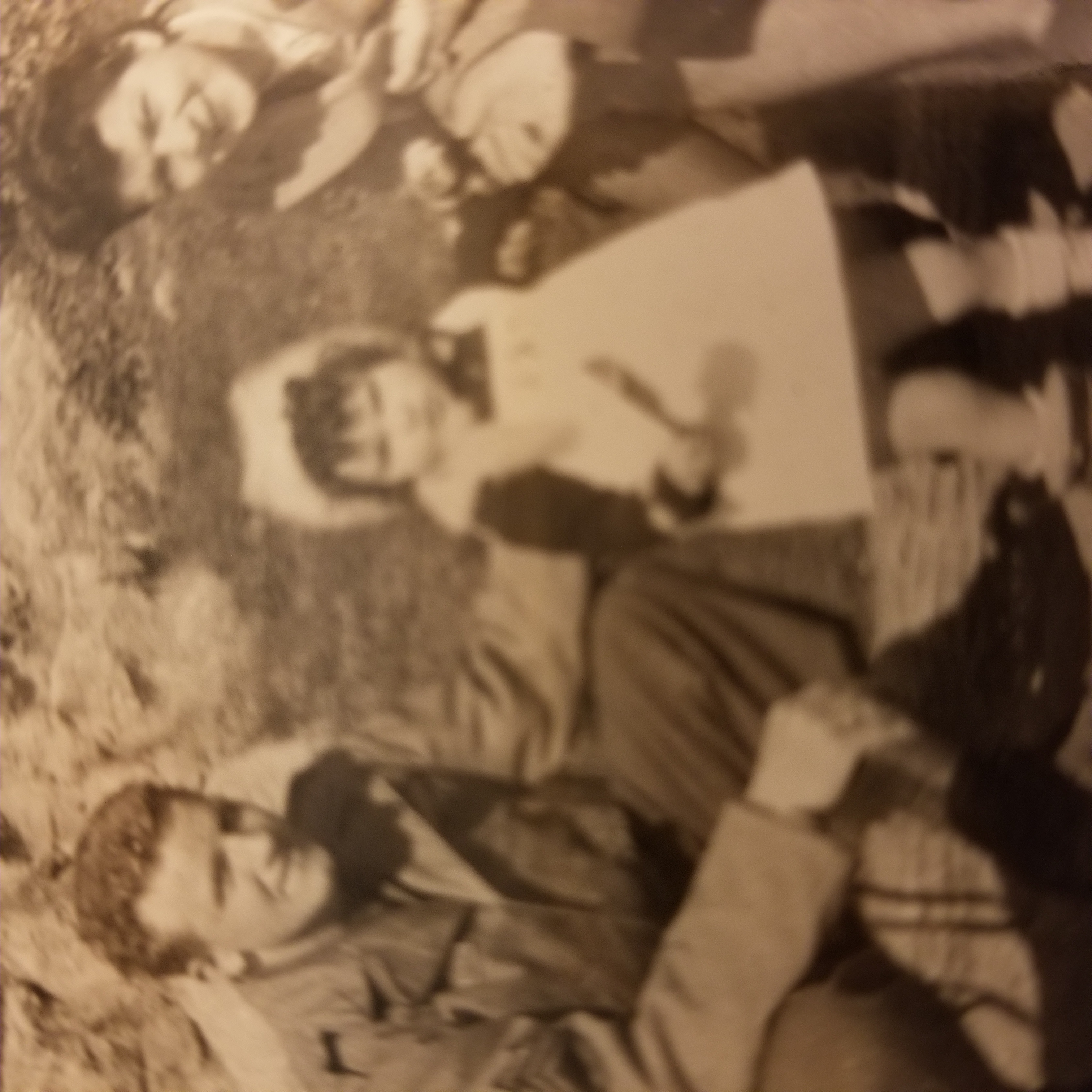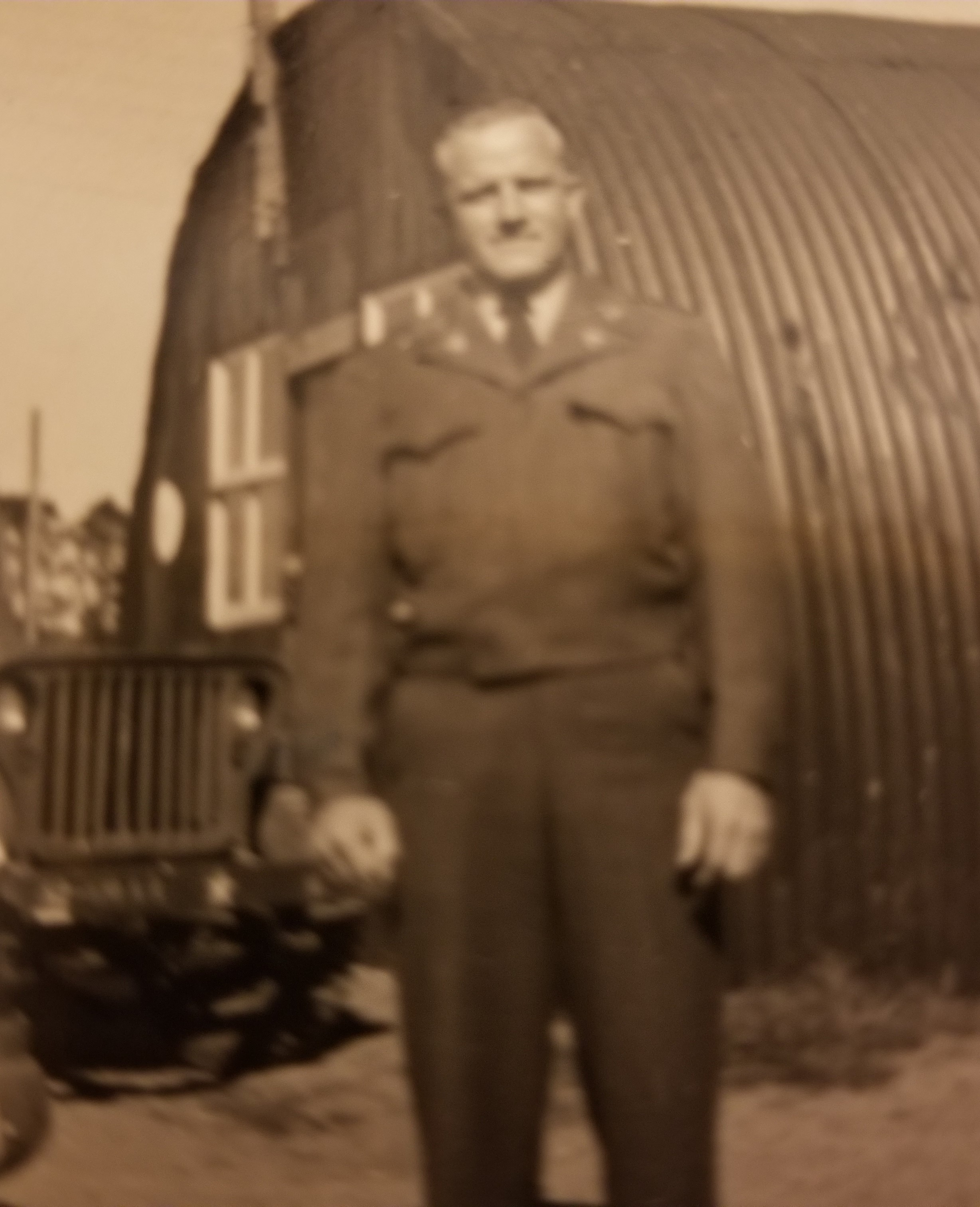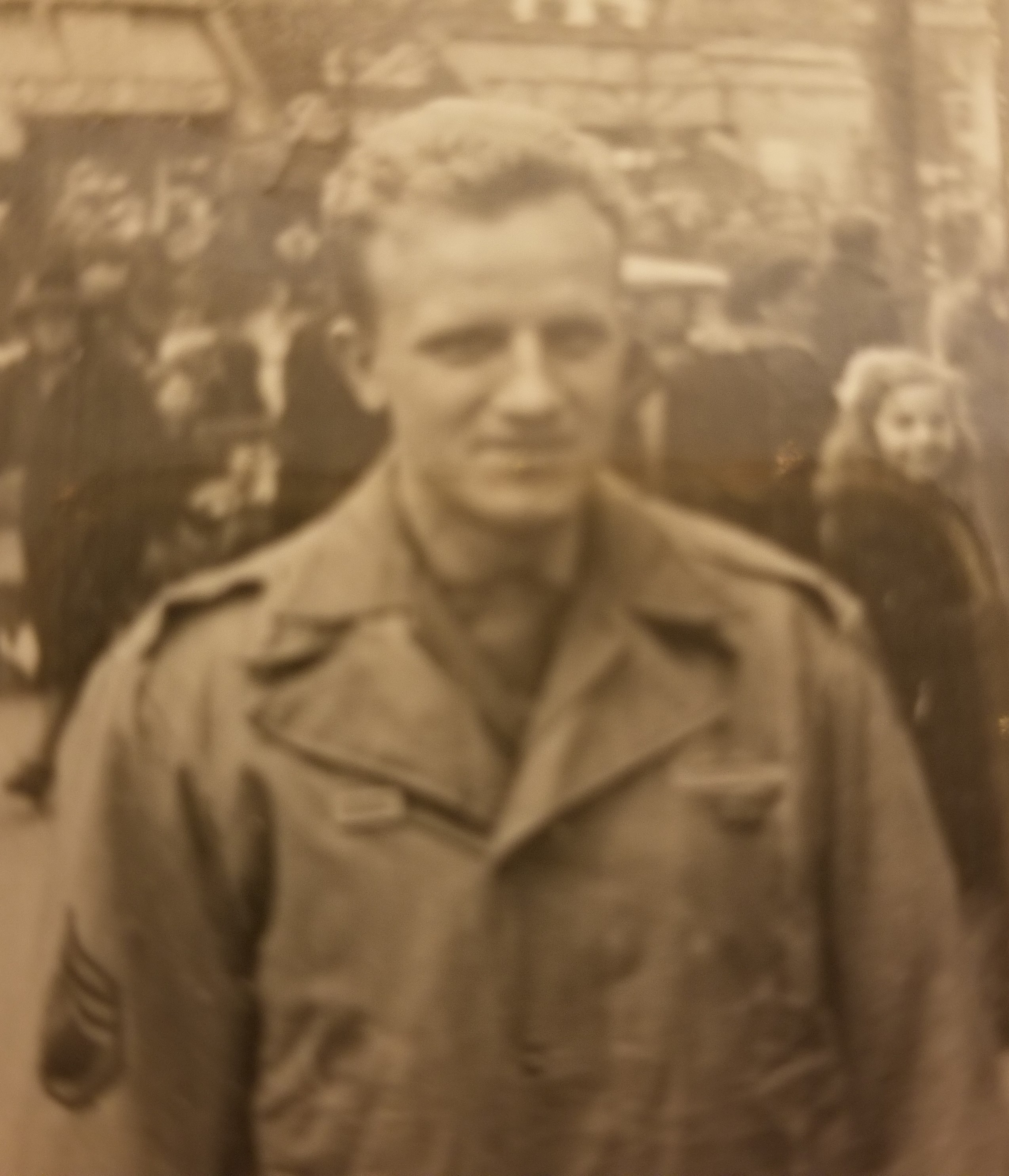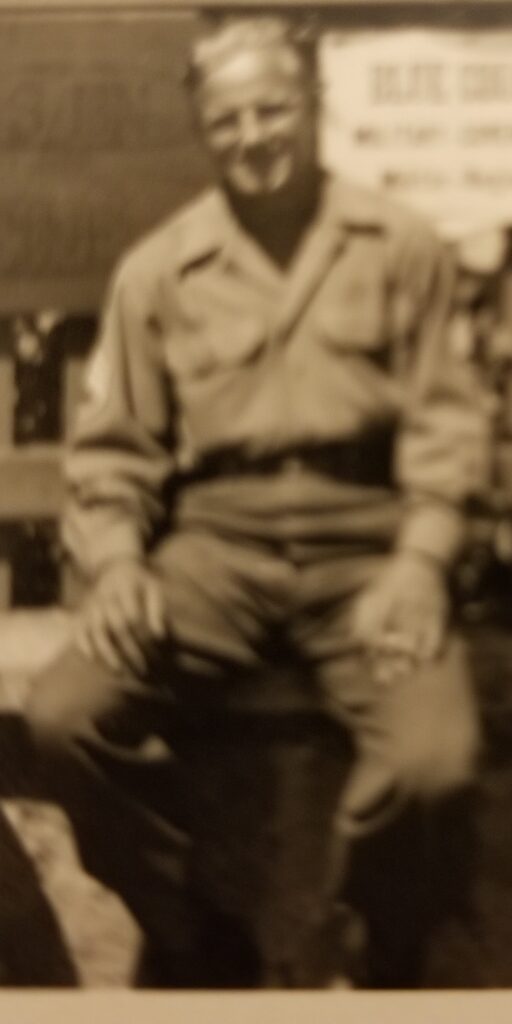by Joanne Moss, niece of BOBA member Matthew A. Reluga, SSGT 90th Infantry Division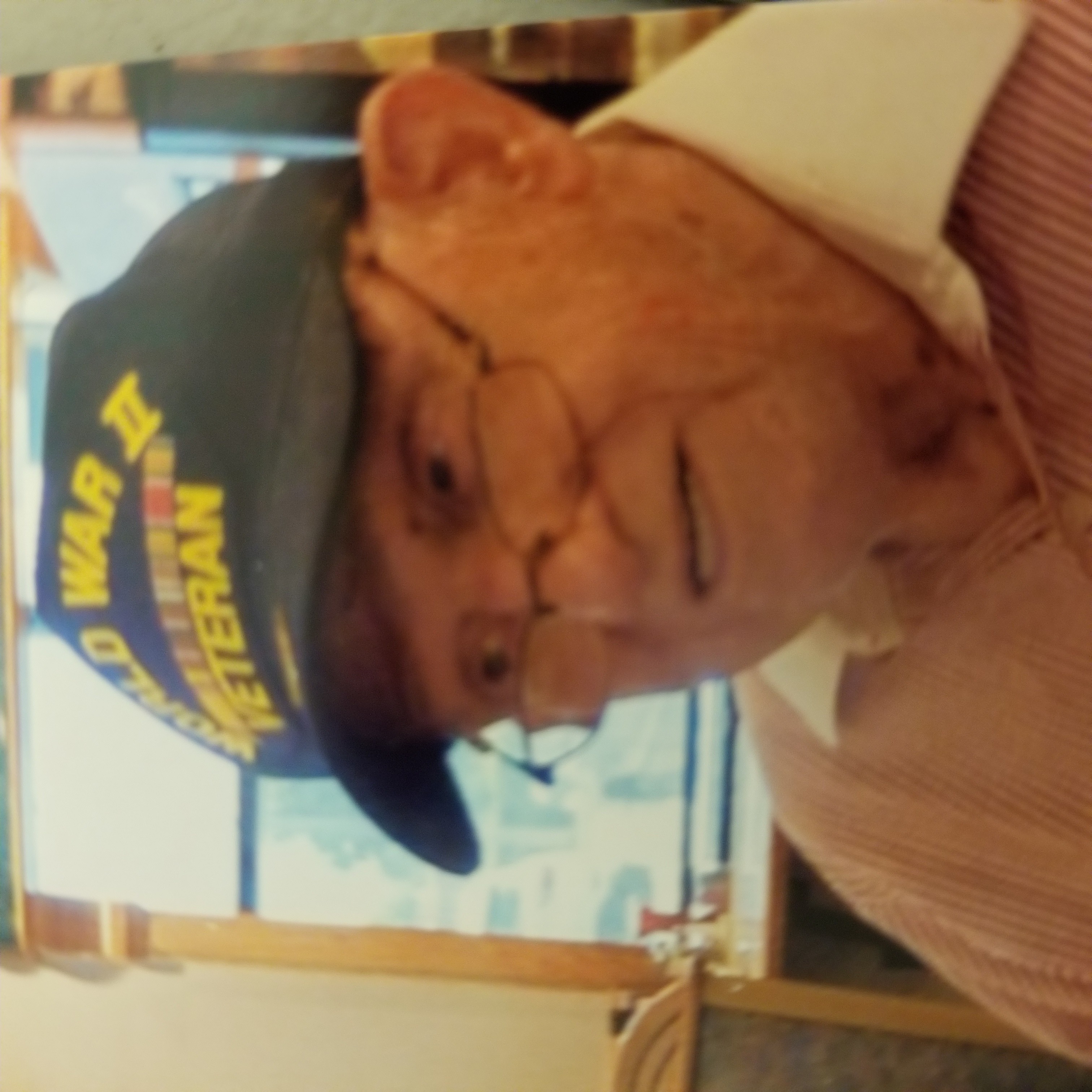
Recently, I was asked to write a brief story about the war history of Matthew A. Reluga. Overwhelmed was what I felt at the time, since Matt is now 101 years of age and he does not often recall what he had for breakfast, let alone what transpired well over seventy-five years ago. Several times, I broached the subject and asked what he particularly remembered about those trying and emotional times. Each time, I received the same answer. “It was long ago and I don’t want to talk about it.” This was indeed a mixed message, as he has often expressed the sentiment that we must all remember what went before and, especially, the Battle of the Bulge where he came off the boat only to fall face first into the icy waters. Fortunately, or unfortunately, a fellow soldier (unnamed) yanked him up by his pack and pushed him forward to meet untold chaos.
He told of troops dropping air markers from the planes to show where the landing was to happen but the wind drove the smoke the wrong way and the battle worsened. He also related to my family that he was sent as an intelligence scout into the line of fire where he was subjected to both American and German artillery. Despite this, he made it back to his troops with important information. He does not recall where this took place, other than he told his driver to stay with the vehicle and not to follow him under any circumstances. Matt related that he still sees the soldier’s face and that the fellow looked awfully scared!
None of this seemed like the meat of a “Battle of the Bulge” story and I was a bit disappointed that he could not remember more about battle lines, towns, people he met, etc. Then, about a week ago, while visiting and straightening his closet for him, I found a beautifully bound book on WWII and the various theatres. It was filled with maps showing battles, line of demarcation, towns, and arrows showing German, English and American movement through various battles. Finally, I thought I had found a memory jogger to get more information from this gallant soldier.
I brought the book to his chair and opened it up to his Division’s pages. He looked at me with watery eyes and said that it was quite a book but he was there because it was his duty to be there, not to remember or recognize any of the towns or people. When asked if he remembered any of the fellow soldiers he fought so closely with, he denied remembering any, with the exception of one. He has a picture hanging on his living room wall of that soldier. Matt related that they were good buddies and that they talked often about where they were (War), why they were there (fighting the Germans) and what they were doing in the field. He related also that both of them preferred to take on assignments alone.
Why, I asked?
“It was better to know that no one else was at risk and would die because of where we were,” was his response.
“I still see the faces.” He knew that at any given time, the young fellow next to him might be blown up or shot and, after seeing that happen so many times, he preferred to go it alone. At one battle, his Division of about 150 men went to fight. Only 7 returned, of which he was one. He wonders to this day why that is.
The times he does remember, with some accuracy, was riding on a train to either a boot camp or training camp. The train had broken windows and the soldiers were hanging out the windows looking at the people along the route. A trip to Mexico while on leave and a trip to Paris, France where he was lucky enough to spend some hours with his brother, Charles, an Intelligence Officer in charge of handling captured German soldiers, also stands out in his mind.
Again, none of this seemed like material for an article on war heroism. What it did provide me with was perhaps some insight into the fact that Uncle Matt never remembered our names, the names of his neighbors, or the names of relatives other than his immediate family. My husband was not usually called by name, my son is often addressed as his father, and I am “sweetheart” or “dear” unless he is pushed to say my name. It is then my last name followed by my first (military carry-over?). Neighbors are known as the lady on the corner, the one next door (who was his caretaker and remains a friend and supporter,) and the guy across the street even though they have lived there for many years and were, and are, an important part of his life. He can remember facts about my family that are relayed to him on visits. I believe that his lack of personal nametagging is more a direct result of his life history and most particularly, his war experience.
Being brought up after WWI, going to an orphanage as a young child and raised by strangers until his high school years, he may not have been able to develop close personal ties. Children whom he befriended came and went dependent on their family status. Going to war and having his friends and comrades taken from him on a daily basis, he developed a strategy to protect himself from losing the people he might become attached to. If they had no name, he could not be unduly affected should they be taken away for whatever reason. Unfortunately, while names can easily fade into oblivion, faces do not. Thus, he is still tormented with the faces of those that were left on the battlefield. Because of those faces, Matt refused the Purple Heart. He felt, and still feels, that those medals belong to those who gave their lives. Sadly, he does not realize that he too gave a large part of his life to those fighting years and the memories that he carries to this day.
Now when I visit, I no longer feel upset when he doesn’t call me by name. When I see the light in his eyes when we arrive to visit, I know that I am remembered and cared about. When I see his eyes as he looks at his fellow veterans in his new residence, the Veterans Home, I know that they, too, are important to him, even without names. I believe that all those unnamed soldiers of long ago are still remembered and cared about, name or not, when he asks that the Battle be remembered. No, names and places are really not important, because I can see his remembrance in his eyes.
Photos: Matthew A. Regula, honorable WWII Veteran and recipient of The Bronze Star, Silver Star and various Theatre Medals. Matt is a treasured member of the Delaware Valley Chapter.
